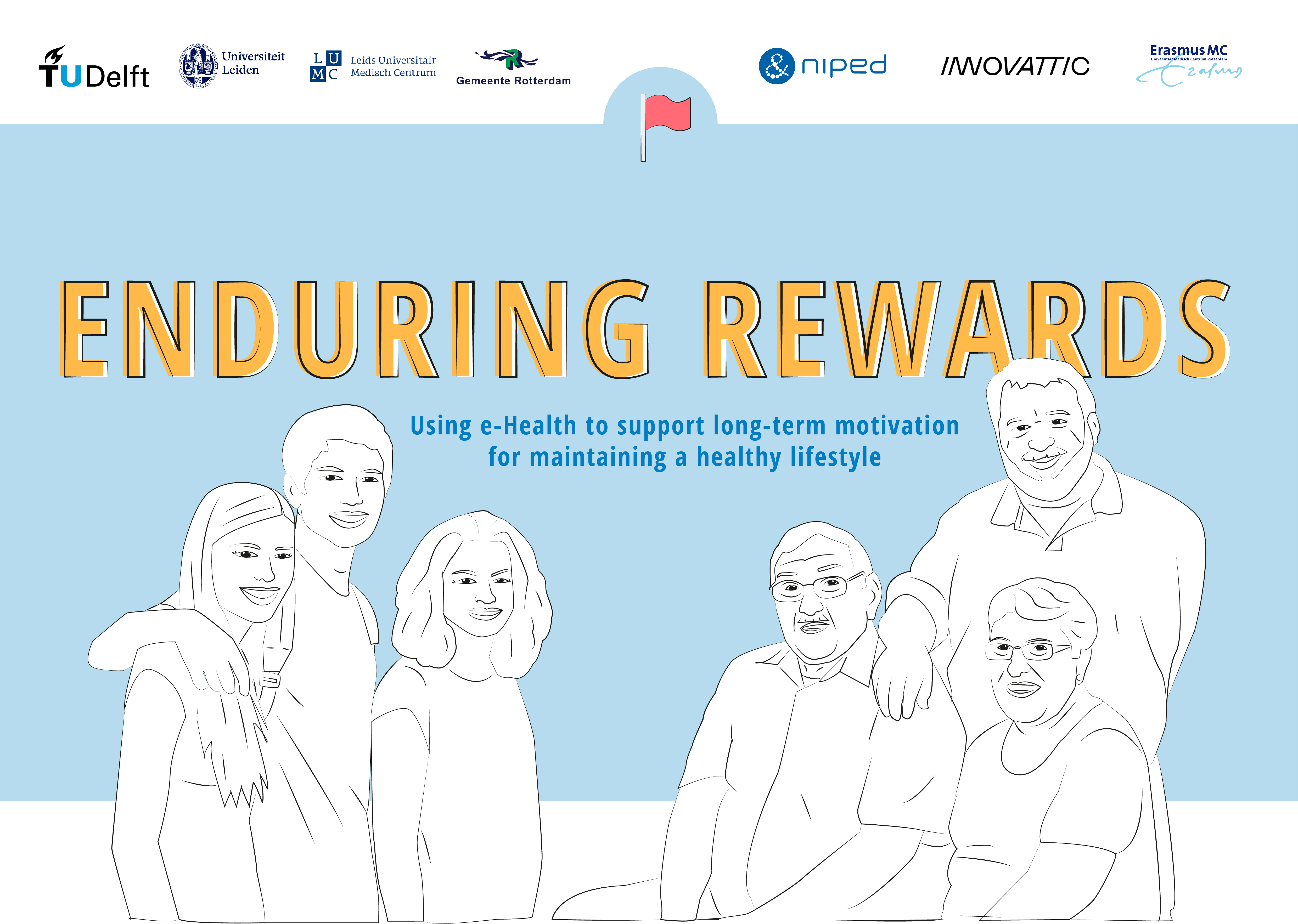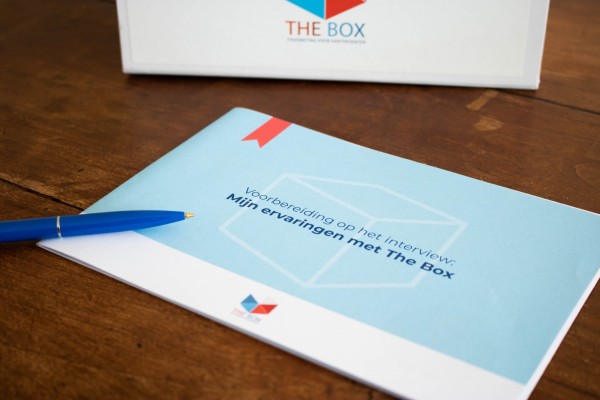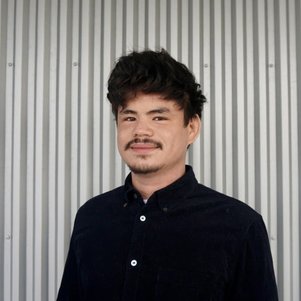Enduring Rewards
“Tomorrow, I’m going to start eating healthy again. And I’ll start exercising twice a week!” We’ve all told ourselves this at least once. This has a good reason, as recent large-scale population research has shown that a healthy lifestyle can extend life expectancy with six years. Furthermore, it can also delay the onset of chronic diseases with nine years. The question everyone’s struggling with is: “how to keep going and maintain the progress I’ve made?”
The Enduring Rewards project investigates and evaluates how design can support motivation for behavioural change maintenance. To this aim, people struggling with lifestyle maintenance, designers, psychologists, hospitals, municipalities, eHealth- and game-developers all collaborate within this project.

Multiple interventions to help people achieve a healthier lifestyle are successful in motivating people to initiate a behavioural change (BC) but often fail to keep people motivated and uphold the hard-fought changes that they’ve made. Incentives, such as reward points that can be redeemed for goods and discounts, are proven motivators to initiate BC and form the core of the Dutch nationwide BENEFIT program. Researchers from Industrial Design Engineering, Leiden University and Erasmus MC expect that incentives can support BC maintenance as well, provided that they are dynamically personalized. Therefore, the project proposes four strategies of personalisation:
- Adapt incentive–type, -quantity, and –moments to BC stage;
- Introduce personal health feedback as motivator;
- Personalise incentives to user’s engagement profile;
- Change system-initiated incentives into user-initiated incentives.
Enduring Rewards will investigate theory, effect, and gamified eHealth design means of these strategies in two testbeds consisting of programs that are successful in BC initiation but not yet in BC maintenance. These are The Box (LUMC), a telemonitoring project for CVD patients facilitating the change to and maintenance of healthy behaviours after a CVD event, and Lekker Fit! (Gem.Rotterdam), a project to stimulate a healthy lifestyle among adolescents. Project partners include Leiden University Medical Centre, Erasmus Medical Centre Rotterdam, NIPED Prevention, Innovattic and Rotterdam Municipality.
For these health behaviour change programmes the project will develop eHealth demonstrators by means of co-creative Research-through-Design methods. These demonstrators will be evaluated on their 6-month behavioural maintenance effect. The project results in eHealth design tools for behavioural change maintenance which are based on evaluated demonstrators and psychological theory.
Project leader
Valentijn Visch
- +31 (0)15 27 84951
- V.T.Visch@tudelft.nl
-
Room C-3-260
PhD

Sara Hondmann
Postdoc
Co-applicant



